
If you’ve ever found yourself lounging in a smoke-filled room with friends, passing around a joint, you may have asked yourself: Is smoking weed addictive? It’s a question that pops up often as cannabis continues to become more widely accepted and legalized. What starts as a casual indulgence can sometimes feel like more than just a hobby. So, can you get hooked on weed?
Cannabis Culture and Its Casual Appeal
People don’t typically associate marijuana with addiction the way they do with harder substances like opioids or cocaine. After all, it’s not uncommon to hear someone say, “You can’t get addicted to weed.” But hold on—just because it doesn’t have the same immediate life-wrecking connotations doesn’t mean it’s free from addictive potential. Let’s explore what makes weed, with all its chill vibes, a topic of debate when it comes to addiction.
The Chemistry of Weed: What Are You Smoking?
When we talk about addiction, we have to look at what’s in the stuff we’re smoking. Weed isn’t just dried-up leaves you roll into a joint; it’s a complex mixture of compounds, the most famous being THC (tetrahydrocannabinol) and CBD (cannabidiol). THC is the star of the show—it’s what gets you high. Thank THC for that euphoric feeling, the relaxation, and the giggles.
However, THC is also what makes weed potentially addictive. It interacts with the brain’s reward system, triggering a dopamine release, the “feel-good” chemical. Every time you smoke and get high, your brain remembers how much it liked that feeling. Over time, if you use it enough, your brain starts to crave that dopamine rush, which leads to dependency.
Physical Dependence vs. Psychological Addiction
Here’s where it gets interesting. People often separate addiction into two categories: physical dependence and psychological addiction. Physical dependence is when your body starts to crave a substance, and you feel physical withdrawal symptoms when you stop using it. Think about the classic shakes and sweats you’d associate with a heroin withdrawal.
On the other hand, psychological addiction is when your brain starts to convince you that you need a substance to function, even if your body isn’t physically dependent on it. With weed, the lines between these two are blurry, but make no mistake: you can experience both.
Check Out The Best Online Cannabis Stores >>
What Does Cannabis Dependence Look Like?
Dependence on weed can creep up on you in a deceptively gentle way. Unlike alcohol or heroin, where withdrawals hit hard and fast, marijuana withdrawal is more subtle but can still be distressing. If you’ve been smoking heavily and you suddenly stop, you might experience irritability, sleep disturbances, loss of appetite, and a general sense of unease. It’s not life-threatening, but it’s enough to make someone reach for another joint.
Tolerance and Escalating Use
One of the hallmark signs of addiction is tolerance, which is when you need more of the drug to achieve the same effect. Remember that first hit you took? The one that knocked you on your butt? The more you use weed, the less intense the high becomes. Your brain gets used to it. This is when people start to increase their intake, smoking more frequently or trying higher-potency strains to get the same high. The problem is that this cycle can lead to dependency.
Who’s Most at Risk for Addiction?
Not everyone who smokes weed is at risk of becoming addicted. Most people who use cannabis do so casually, without any long-term consequences. However, some factors can increase the likelihood of developing a cannabis use disorder.
Age of First Use
Studies suggest that the younger you are when you start using weed, the more likely you are to become addicted. The teenage brain is still developing, and introducing a psychoactive substance like THC into the mix can alter brain development, leading to a higher risk of dependency later in life.
Frequency of Use
It’s common sense: the more you use something, the more likely you will develop a dependency on it. Those who use cannabis daily or almost daily are far more likely to experience withdrawal symptoms and addiction than those who use it occasionally.
Mental Health and Addiction
People who struggle with mental health disorders like anxiety, depression, or PTSD may also be at a higher risk for cannabis addiction. Marijuana can be a form of self-medication for some, providing temporary relief from their symptoms. However, this coping mechanism can quickly turn into a crutch, creating a cycle of dependency.
The Role of Modern Marijuana Products
Another factor contributing to the potential for weed addiction is the evolution of marijuana products. Today’s weed is not your grandparents’ weed. Strains are much more potent now, often with higher THC concentrations, which can amplify both the high and the risk of addiction. Concentrates like hash oil, wax, and shatter contain even higher THC levels, sometimes reaching up to 90%. These potent products can increase the likelihood of developing a dependency.
So, Is Weed Addiction Real?
Yes, it’s real. The official term for it is Cannabis Use Disorder (CUD). According to the Diagnostic and Statistical Manual of Mental Disorders (DSM-5), a person can be diagnosed with CUD if they meet certain criteria, such as using more than intended, spending a lot of time getting or using weed and continuing to use it despite knowing it’s causing problems.
The National Institute on Drug Abuse (NIDA) estimates that about 9% of people who use cannabis will develop a dependence on it. That number jumps to about 17% if you use it in your teens.
How to Recognize If You Have a Problem
So, how do you know if your love for cannabis has turned into something a bit more complicated? If you find yourself planning your day around your next smoke session, or if you’ve tried to quit but can’t seem to do it, those are red flags.
Signs of Cannabis Addiction
- Increased tolerance: Needing more weed to feel high.
- Withdrawal symptoms: Irritability, difficulty sleeping, or appetite changes when not used.
- Using more than intended: You plan to take a few hits but end up smoking the whole joint.
- Neglecting responsibilities: Choosing to get high over work or other commitments.
- Failed attempts to quit: Wanting to stop but not being able to.
Breaking Free: Can You Quit Weed?
If you’ve decided it’s time to step back from cannabis, you’re not alone. Many people who develop a dependence on weed eventually choose to quit or at least cutback. The good news is that while quitting can be tough, it’s doable.
Withdrawal Symptoms: What to Expect
Quitting weed, especially after heavy or long-term use, can lead to withdrawal symptoms. While they’re not as severe as withdrawals from substances like alcohol or opioids, they can still make quitting uncomfortable. Common symptoms include:
- Irritability and mood swings
- Difficulty sleeping
- Loss of appetite
- Restlessness
These symptoms usually peak within the first week after quitting and start to fade after two weeks. For most people, the most challenging part of quitting isn’t the physical symptoms but the psychological cravings.
Getting Help: Therapy and Support Groups
If quitting weed on your own feels impossible, you don’t have to go it alone. Cognitive Behavioral Therapy (CBT) is one of the most effective treatments for cannabis addiction. It helps you identify the triggers that lead you to smoke and teaches you healthier ways to cope with stress or boredom.
Support groups like Marijuana Anonymous also provide a safe space to share your experiences and get support from others who are going through the same thing.
FAQs
Is it possible to get addicted to marijuana?
Yes, while not everyone who smokes will become addicted, marijuana can lead to dependency for some people, especially with regular use.
What are the signs of marijuana addiction?
Signs include increased tolerance, withdrawal symptoms like irritability, and using more than intended despite negative consequences.
Can you quit smoking weed without professional help?
Many people quit on their own, but for those struggling with severe addiction, professional support like therapy or support groups may be helpful.
How long do marijuana withdrawal symptoms last?
Withdrawal symptoms typically peak within the first week and subside after two weeks.
Does marijuana addiction affect your health?
Yes, chronic use can lead to mental health issues like anxiety, depression, and cognitive impairments, as well as lung problems if smoked.
Can young people get addicted to weed?
Yes, teens and young adults are at a higher risk of developing a cannabis use disorder, especially if they start using it regularly at a young age.
Conclusion: Is Smoking Marijuana Addictive?
While smoking weed may not have the same addictive reputation as some harder substances, it’s clear that cannabis has the potential to become addictive, especially with regular and long-term use. It’s important to recognize the signs of cannabis use disorder and know that, like any addiction, recovery is possible. If you or someone you know is struggling with marijuana addiction, reaching out for help can be the first step toward regaining control.
I got to run; it’s almost 4:20!
More Cannabis Education
Top 10 High-Yield Cannabis Strains for Growers That Will Blow Your Mind
Growing cannabis is as much an art as it is a science. Every grower wants the same thing…
Top 10 Low-Maintenance Cannabis Strains to Grow Indoors
The world of indoor cannabis growing is a place where you can coax leafy green…
How to Set Up a Small Indoor Cannabis Grow Room
There’s something wildly charming—bordering on romantic—about turning a closet or unused…
10 Proven Ways to Cure Cotton Mouth When Smoking Marijuana (And Fix It Fast)
Have you ever taken a puff and suddenly felt like your tongue just walked through the…
LED vs. HPS Grow Lights: What’s Best for Growing Indoor Cannabis?
So, there I was, face-to-face with my cannabis plants, trying to decode their droopy leaves like a…
You May Also Like
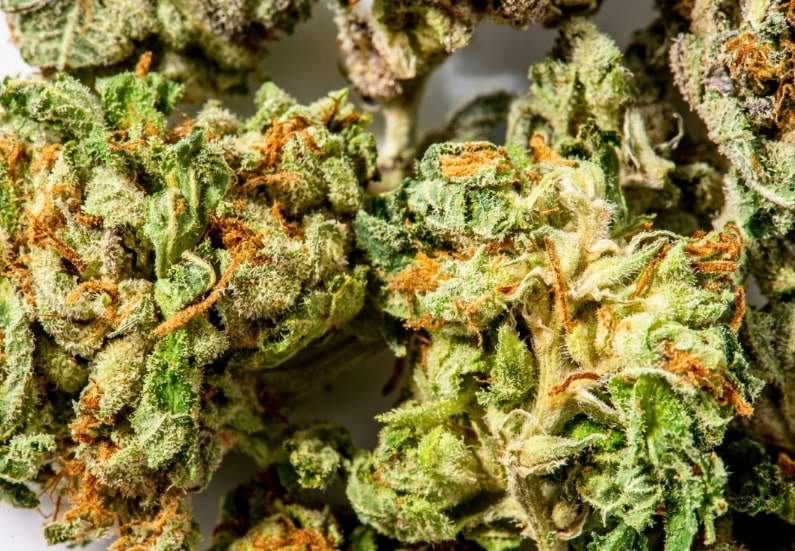
Top 10 Low-Maintenance Cannabis Strains to Grow Indoors
The world of indoor cannabis growing is a place where you can coax leafy green…
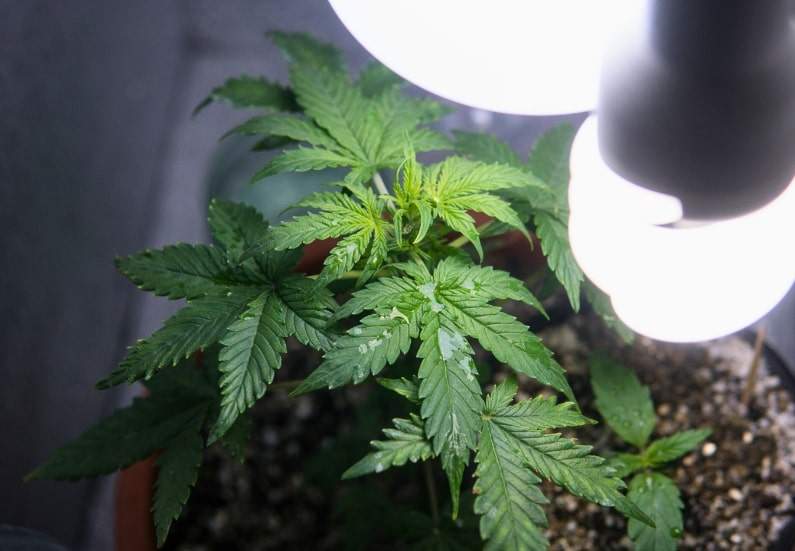
How to Set Up a Small Indoor Cannabis Grow Room
There’s something wildly charming—bordering on romantic—about turning a closet or unused…
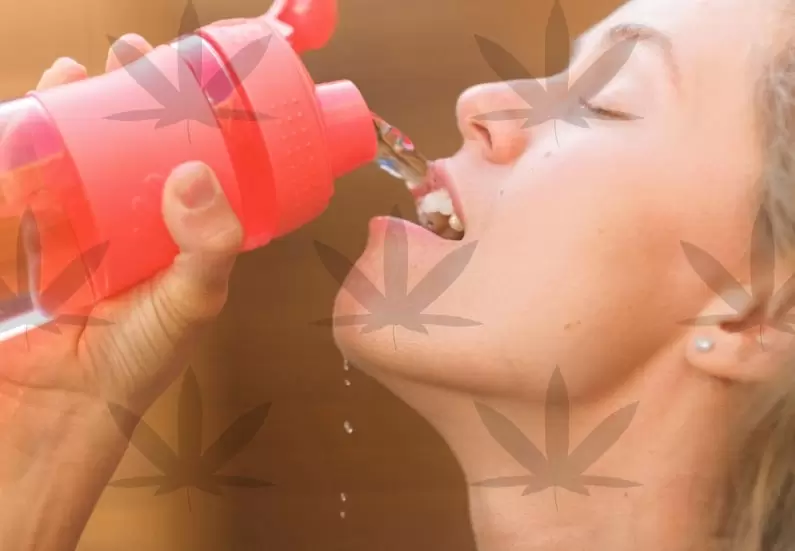
10 Proven Ways to Cure Cotton Mouth When Smoking Marijuana (And Fix It Fast)
Have you ever taken a puff and suddenly felt like your tongue just walked through the…
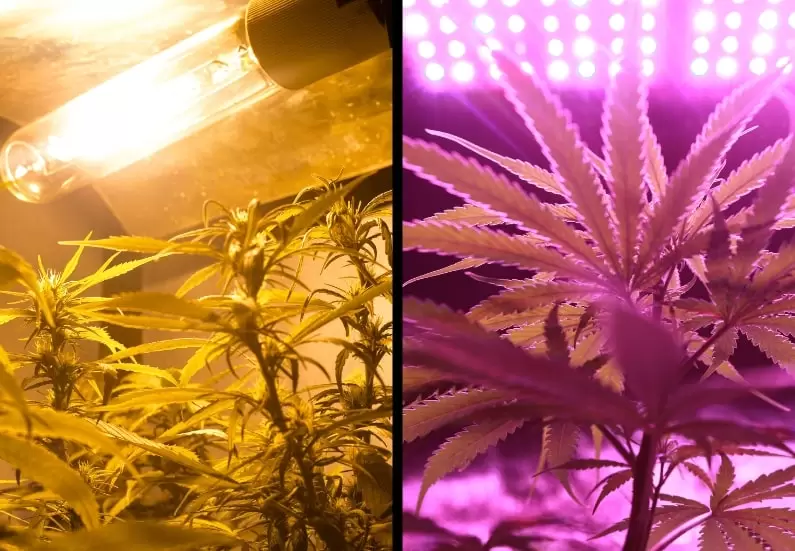
LED vs. HPS Grow Lights: What’s Best for Growing Indoor Cannabis?
So, there I was, face-to-face with my cannabis plants, trying to decode their droopy leaves like a…

How to Smoke Weed and Meditate: 7 Surprising Steps to a Higher State of Mind
There’s something paradoxically hilarious about trying to sit still and clear your mind while…
Most Recent Posts

Top 10 Low-Maintenance Cannabis Strains to Grow Indoors
The world of indoor cannabis growing is a place where you can coax leafy green…

How to Set Up a Small Indoor Cannabis Grow Room
There’s something wildly charming—bordering on romantic—about turning a closet or unused…
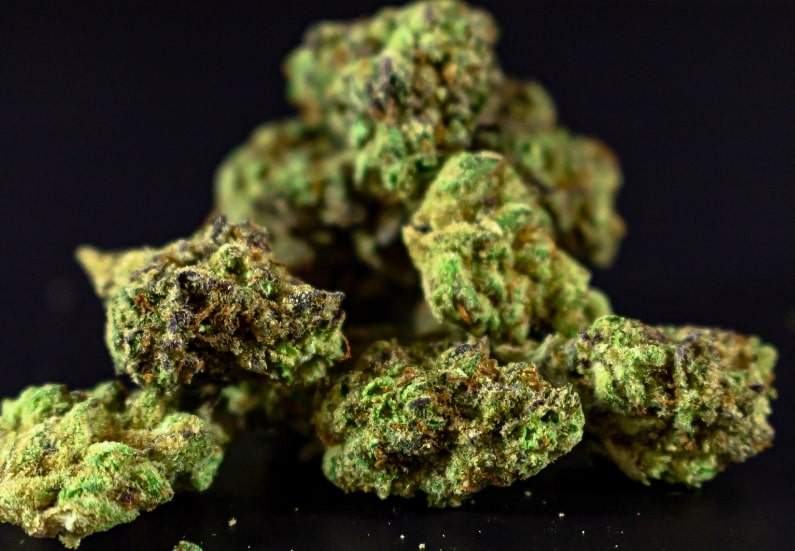
Top 10 Most Popular Hybrid Cannabis Strains (With Effects & Flavor Notes)
If cannabis were a cast of characters in a Broadway play, Indica would be lounging in a velvet…

10 Proven Ways to Cure Cotton Mouth When Smoking Marijuana (And Fix It Fast)
Have you ever taken a puff and suddenly felt like your tongue just walked through the…

LED vs. HPS Grow Lights: What’s Best for Growing Indoor Cannabis?
So, there I was, face-to-face with my cannabis plants, trying to decode their droopy leaves like a…







